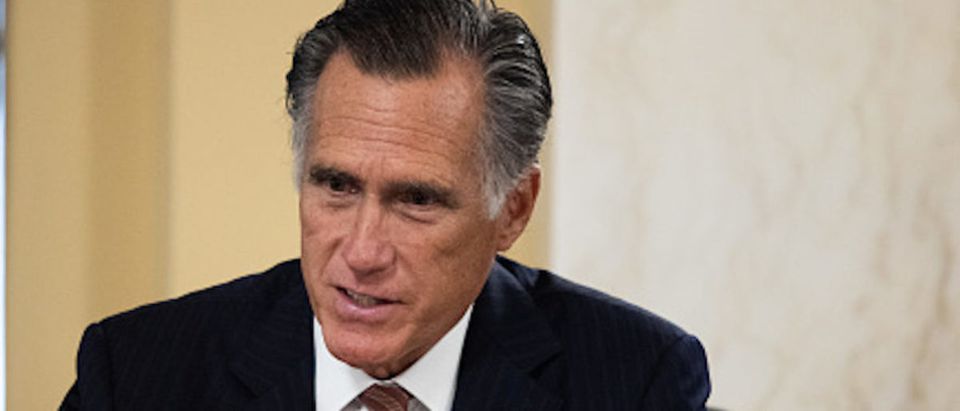Call it a February surprise.
Sen. Mitt Romney released a plan to provide a federal child allowance for families. This sent shockwaves through the economic policy arena and immediately raised the debate over pro-family economics to a new level, especially among conservatives. Even during the height of President Trump’s second impeachment trial, Republicans on Twitter seemed more interested in debating the finer points of pro-family policy. You love to see it.
Of course, Romney is not the first Republican lawmaker in recent years to propose a change in economic policy to help encourage family formation. Sens. Marco Rubio and Mike Lee have for some time now championed an expansion of the child tax credit in order to boost benefits to working families. And two years ago, Sen. Bill Cassidy teamed up with Democratic Sen. Kyrsten Sinema to put forward an innovative, budget-neutral “baby bonus” plan, allowing parents of newborns to frontload $5,000 from their own child tax credit.
However, Romney’s plan – called the Family Security Act – represents an entirely new approach. It would reform and merge existing welfare programs to create a universal child benefit, providing American families with $350 per month for each child under the age of six, and $250 per month for each child between ages 6-17. Incredibly, this proposal would add no extra cost to the taxpayer.
While the plan has been praised by many on the right, it has also drawn considerable criticism.
Some, primarily from the libertarian wing, have asserted that Washington should not be in the business of encouraging family formation at all. But such non-interventionism is nearly impossible to defend given America’s growing family crisis. Marriage rates in the U.S. are now lower than at any point since record-keeping began in the 19th century, with a large number of unmarrieds citing economic instability as a primary reason. And our fertility is not much better: in 2019, America’s birth rate hit its lowest level in three decades, and it is likely that the COVID-19 pandemic may exacerbate this even further, with one report estimating it might result in between 300,000 and 500,000 fewer children.
This is nothing short of a national emergency, and just as our government has been called to extraordinary responses in times of war, natural disaster, or economic catastrophe, Washington must act to address our contemporary family collapse as well.
Others on the right, while agreeing that a pro-family policy response is needed, have argued that a child allowance plan like Romney’s would be problematic because it might incentivize parents to drop out of the workforce.
However, while such an outcome is at this point uncertain, even if it did result, it’s not clear that more parents staying home with their kids would necessarily be a bad thing. Rather than seeing payments to stay-at-home parents as welfare, one might instead consider them an investment in the raising of America’s next generation. And from an economic standpoint, children really are an investment; in fact, our nation’s declining birth rate represents one of the greatest threats to our long-term economic outlook.
Romney’s plan, if anything, doesn’t go far enough. It caps the allowance at $15,000 annually, meaning that families with more than four kids would be disadvantaged. This is likely by design, in part to address some of the concerns about parents dropping out of the workforce. But what if the plan capped the benefits at $15,000 for unmarried parents but allowed married families to continue to collect up to 6, 7, 8, 9, 10 kids? Are we really worried about married families having too many kids? While the child allowance might be an incentive for a secondary income earner to drop out of the workforce to raise their children — not the worst outcome in the world — it would likely never be enough of a benefit to incentivize a primary income earner to stop working. Kids are expensive.
Additionally, it should be noted that Romney’s proposal is incredibly pro-life. The child allowance starts four months before a baby is born! And with economic instability being a significant factor in women choosing abortion, there’s no doubt that this proposal will empower more women to choose life.
While there is a legitimate debate to be had over whether Romney’s proposal represents the best way to encourage the formation and growth of stable families, at this point there should be no debate over whether such action is required. In order to prevent a potential catastrophe that could end American civilization itself, our leaders must embrace a new, pro-family economics. And we should all be grateful to Sen. Romney for jumping in head first to get the conversation started.
Terry Schilling is the executive director of American Principles Project. Follow him on Twitter @Schilling1776.


